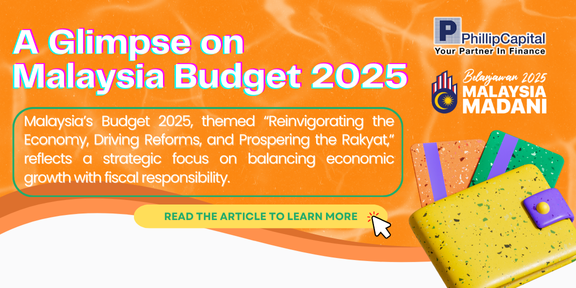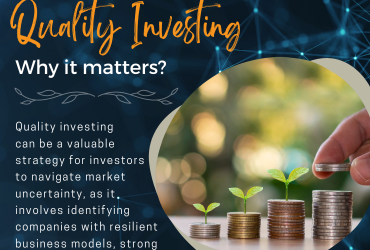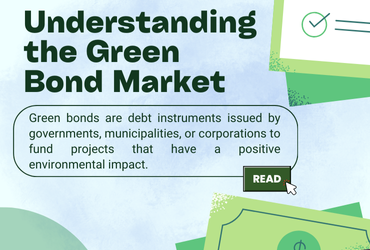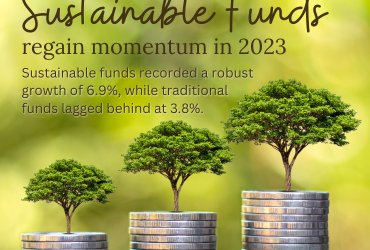
Malaysia’s Budget 2025, themed “Reinvigorating the Economy, Driving Reforms, and Prospering the Rakyat,” reflects a strategic focus on balancing economic growth with fiscal responsibility. The government emphasizes subsidies rationalization, tax reforms, infrastructure development, and long-term social and environmental sustainability. As the nation navigates post-pandemic recovery and global uncertainties, the budget seeks to lay strong foundations for future growth while addressing immediate economic needs.
Fiscal Prudence with Targeted Subsidies and Taxation Adjustments
A central theme of Budget 2025 is the transition to more targeted subsidies, starting with the rationalization of RON95 petrol subsidies from mid-2025. Under the new scheme, 85% of citizens will continue to enjoy the subsidized price of RM2.05/litre, while wealthier individuals and non-citizens will be excluded. This rationalisation is expected to save RM8 billion, which will be reallocated towards essential sectors such as education, healthcare, and public infrastructure. The government’s fiscal strategy aims to reduce the fiscal deficit from 4.3% of GDP in 2024 to 3.8% in 2025, with the goal of reaching 3.0% in the medium term.
Taxation reforms include expanding the Sales and Service Tax (SST) to cover financial services and imported luxury goods (i.e. salmon & avocado), effective May 2025. Additionally, a new 2% tax on dividend income exceeding RM100,000 per individual will be introduced. Meanwhile, multinational companies will be subject to a 15% Global Minimum Tax, aligning Malaysia with international efforts to prevent profit shifting. These measures aim to reduce reliance on petroleum-based revenues and diversify income streams.
Economic and Labour Reforms to Stimulate Spending
Aligned with the government’s goal to stimulate consumer spending, the minimum wage will rise from RM1,500 to RM1,700 per month starting February 2025. This increase is expected to boost disposable income and benefit the consumer sector. However, industries heavily reliant on foreign labor—such as plantations, manufacturing, and construction—may face higher labor costs. That said, the impact on production and construction costs is expected to be minimal, as most workers in these sectors are already earning above the current minimum wage.
To alleviate the rising cost of living, the government is enhancing its cash assistance programs. Allocations for the Sumbangan Tunai Rahmah (STR) and Sumbangan Asas Rahmah (SARA) schemes will increase from RM10 billion to RM13 billion, with maximum household aid raised to RM4,600 per year. These initiatives aim to support vulnerable groups while gradually phasing out subsidies for higher-income earners. The 30% increase in cash handouts for lower-income households is a positive step toward easing financial pressures. We remain optimistic that certain consumer brands will benefit from this, driven by the inelastic demand for affordable groceries and household essentials.
Infrastructure Investment and Development Focus
The government will maintain its development expenditure at RM86 billion, prioritizing ongoing infrastructure projects rather than launching new mega-projects. Key initiatives include the completion of the Pan Borneo Highway, the Sabah-Sarawak Link Road Phase 2, and the Penang LRT, with Gamuda identified as a primary beneficiary. Airport expansions in Sabah and Sarawak, flood mitigation projects, and the widening of the North-South Highway are also in the pipeline. The absence of major projects like the MRT3 and the Johor-Singapore High-Speed Rail reflects the government’s emphasis on prudent fiscal management.
Public-private partnerships (PPPs) will play a crucial role in infrastructure development, with projects worth RM9 billion planned. The focus on East Malaysian projects highlights the government’s commitment to reducing regional disparities.
Sectoral Allocation: Technology and Healthcare
The technology sector is a key focus, with RM120 billion in investments from government-linked companies over five years. The budget expands tax incentives for export growth, including support for IC design activities to foster high-value exports. It also emphasizes strengthening the electronics and electrical (E&E) sector through advanced materials production and IC design services. The government aims to create high-income jobs in fields like artificial intelligence (AI), positioning Malaysia as a tech hub. Special tax deductions will be offered to private universities developing technologies in AI, robotics, IoT, data science, fintech, and sustainable tech. Additional incentives include double tax deductions, investment grants, and accelerated capital allowances to encourage domestic sourcing and digital transformation.
In healthcare, the Ministry of Health (MOH) receives RM45.3 billion, a 10% increase from the previous year. Of this, RM1.35 billion is allocated for maintaining health infrastructure, and RM300 million will upgrade clinics—a 50% increase from last year. The government will partner with private hospitals to reduce patient congestion and costs, benefiting private healthcare providers. The lease-to-use model for medical equipment will ease financial burdens on hospitals and promote regular technology upgrades, benefiting the medical equipment suppliers. Additionally, efforts to boost local drug supply and invest in halal vaccine production aim to meet domestic needs and growing global demand.
Conclusion: Pragmatic Steps Toward Sustainable Growth
Malaysia’s Budget 2025 reflects a pragmatic and forward-looking approach to balancing fiscal consolidation with social equity and economic growth. The government’s commitment to long-term reforms—such as targeted subsidies, wage increases, and green energy initiatives—aligns with the broader vision of achieving sustainable development. Overall, the budget sets the stage for gradual economic recovery, supported by robust infrastructure development and enhanced social assistance.
Phillip Capital Malaysia and our offerings
We reaffirm our belief that there are still opportunities in the market, and we maintain a discerning approach in choosing high-quality stocks for our portfolio. However, it is crucial to exercise caution and carefully select investment options to ensure the best risk-adjusted returns. By taking a vigilant and discerning approach, investors can potentially reap the benefits of the current market opportunities while minimising risks.
A noteworthy avenue for investors seeking diversification in their portfolio is through PhillipCapital Malaysia. PhillipCapital Malaysia offers multiple private mandate services managed by professional fund managers. By leveraging PhillipCapital Malaysia’s private mandate services, investors can enhance their resiliency, optimise portfolio performance, and navigate the complexities of the market with confidence.
We also offer both conventional and Shariah-compliant options to cater to the needs of all investors.
For Malaysia’s mandates, we like:
- PMART/PMA Dividend Enhanced and/or PMART/PMA Dividend Enhanced ESG
Our PMART Dividend Enhanced and PMA Dividend Enhanced is an income-driven portfolio focused on high dividend-yielding equities. We apply the Dog of the Dow approach, screen and select top market cap stocks to minimise risk and ensure consistent performance. The portfolio is an equal weighting portfolio which reduces concentration risk and provides similar exposure to all clients, both initially and after rebalancing. We offer both conventional and Shariah investment options to cater to the diverse needs of our investors. Click here to learn more. We recently also introduced PMART/PMA Dividend Enhanced ESG Mandate as we remain dedicated to investing in ESG stocks given their stronger valuation and profitability.
- PMART/PMA ESG
Phillip Capital Malaysia offers discretionary portfolio that invests in stocks with high ESG ratings from the F4GBM and F4GBMS Indices, namely PMART and PMA ESG. There are both conventional and Shariah options available. To explore the companies in which both Conventional and Shariah ESG mandates invest, you can refer to the provided link.
- PMART/PMA Blue Chip and Opportunity
Our Blue-Chip portfolios primarily allocate our investments towards companies with large market capitalisations, while the Opportunity portfolios predominantly invest in companies with smaller market capitalisations. We also offer both conventional and Shariah-compliant options to cater to the needs of all investors.
Please click on the link to learn more or email us at cse.my@phillipcapital.com.my if you require any further information.
Disclaimer:
The information contained herein does not constitute an offer, invitation or solicitation to invest in Phillip Capital Management Sdn Bhd (“PCM”). This article has been reviewed and endorsed by the Executive Director (ED) of PCM. This article has not been reviewed by The Securities Commission Malaysia (SC). No part of this document may be circulated or reproduced without prior permission of PCM. This is not a collective investment scheme / unit trust fund. Any investment product or service offered by PCM is not obligations of, deposits in or guaranteed by PCM. Past performance is not necessarily indicative of future returns. Investments are subject to investment risks, including the possible loss of the principal amount invested. Investors should note that the value of the investment may rise as well as decline. If investors are in any doubt about any feature or nature of the investment, they should consult PCM to obtain further information including on the fees and charges involved before investing or seek other professional advice for their specific investment needs or financial situations. Whilst we have taken all reasonable care to ensure that the information contained in this publication is accurate, it does not guarantee the accuracy or completeness of this publication. Any information, opinion and views contained herein are subject to change without notice. We have not given any consideration to and have not made any investigation on your investment objectives, financial situation or your particular needs. Accordingly, no warranty whatsoever is given and no liability whatsoever is accepted for any loss arising whether directly or indirectly as a result of any persons acting on such information and advice.






